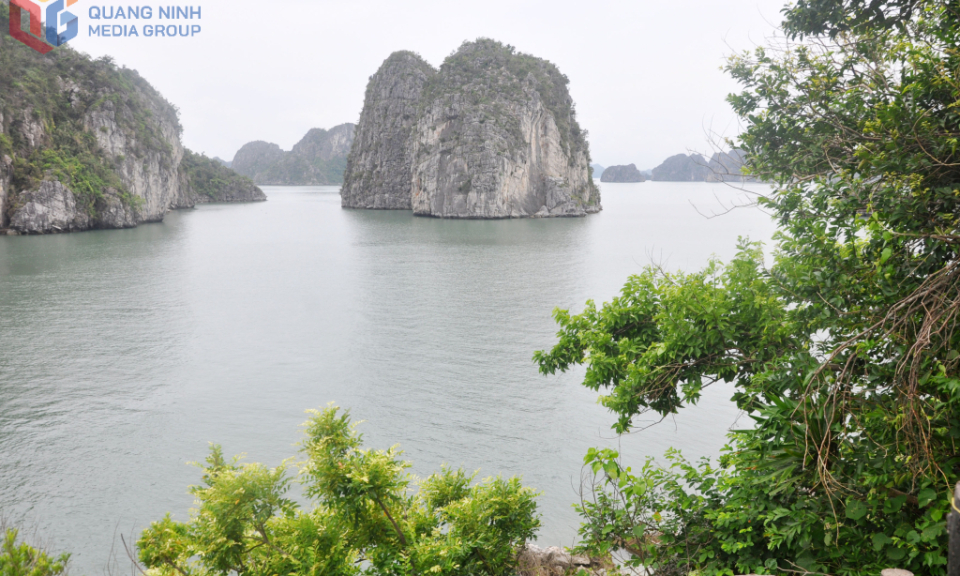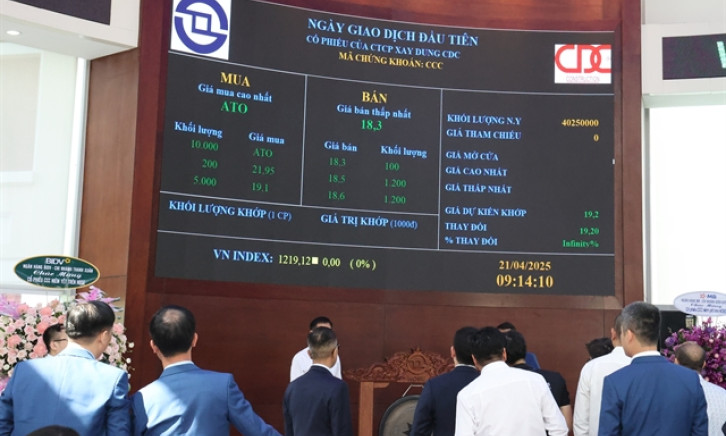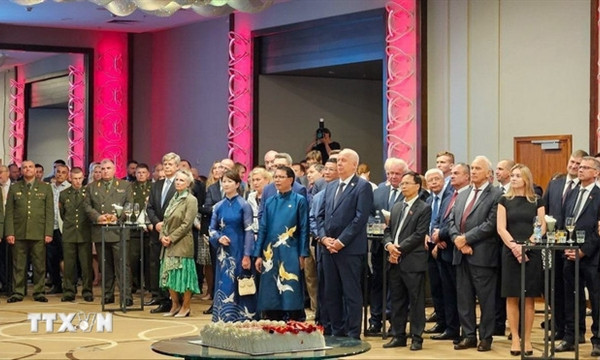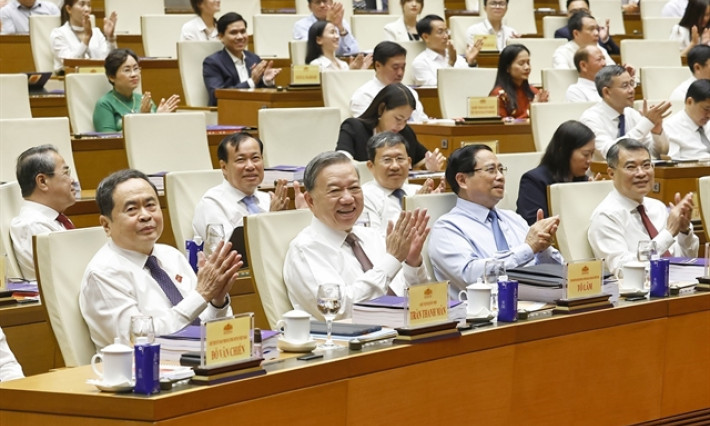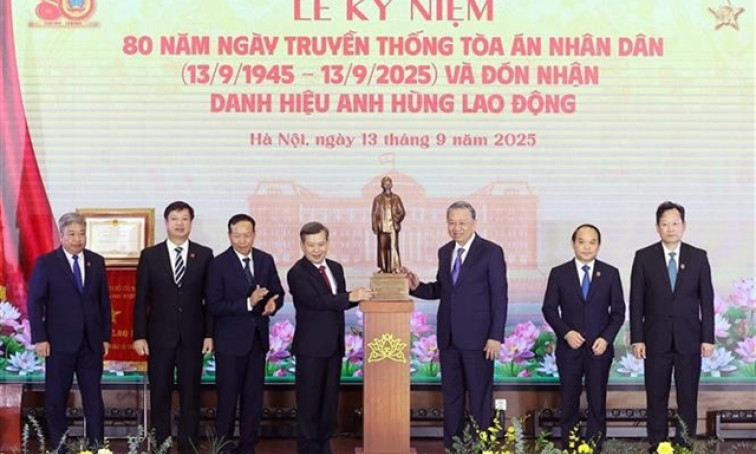International cooperation key to addressing urbanisation challenges: deputy minister
The Central Economic Committee organised the workshop in collaboration with the Ministry of Construction and the French Development Agency (AFD) in Việt Nam.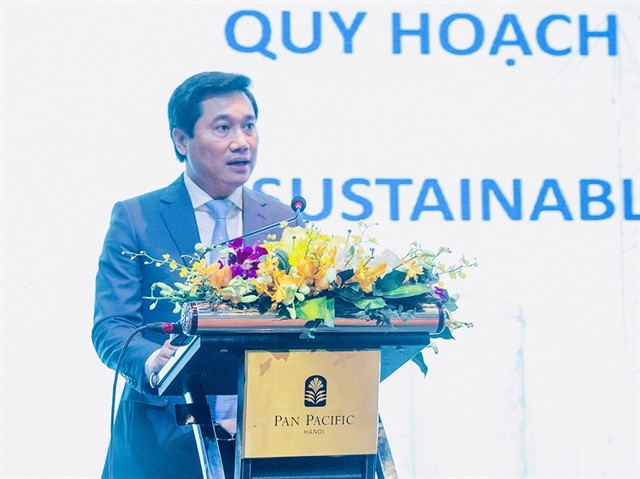
In the context of increasing urbanisation around the world, close cooperation between global partners have become a common trend in addressing the challenges of the development process.
This was the message emphasised by Deputy Minister of Construction Nguyễn Tường Văn at the workshop "Sustainable planning and development of urban areas" held on March 7 in Hà Nội.
The Central Economic Committee organised the workshop in collaboration with the Ministry of Construction and the French Development Agency (AFD) in Việt Nam.
This is the first in a series of national-level workshops on strengthening the resilience and recovery of Vietnamese urban areas from the impacts of climate change.
The workshop is organised within the Water and Natural Resources Management Fund (WARM Facility) framework, funded by the European Union, to enhance Việt Nam's resilience and recovery capacity against climate change and natural disasters.
The workshop is an opportunity to exchange information on ways to support Việt Nam in achieving its objectives of enhancing the resilience of provinces and cities against the impact of climate change, reducing greenhouse gas emissions and protecting the environment.
The opening report of the seminar indicates that after 35 years of renewal and development, Việt Nam has achieved significant achievements in urban planning with a high rate of urbanisation (40 per cent in 2022 compared to 30.5 per cent in 2010), contributing about 70 per cent of the country's GDP and gradually improving the quality of life of urban residents.
However, the urbanisation process still has many limitations, such as rapid development but lacking an overall sustainable strategy, urban infrastructure not being synchronised with social development and environmental protection, waste of natural resources, land and human resources, and limited management capacity.
Therefore, it is necessary to develop a comprehensive urban planning strategy to ensure the harmony of the above issues towards green growth goals that are resilient to climate change and achieve net-zero emissions by 2050.
"One of the key tasks of the Construction industry in the coming years is to implement Resolution 148/NQ-CP effectively," said the Deputy Minister of Construction Văn. "This resolution is expected to create an important transition in quantity and quality in planning, construction, and urban development.
"As a standing role in international cooperation in urban development, the Ministry of Construction actively participates in cooperation activities and exchanges experiences with international friends, including France and other EU countries."
At the seminar, Mr Giorgio Aliberti, Ambassador, Head of the European Union Delegation to Việt Nam, said: "The European Union always strongly commits to supporting the Vietnamese Government in achieving sustainable development goals. That is why we are building the WARM fund to sponsor the preparation and implementation of strategic infrastructure investment projects to enhance Việt Nam's capacity to adapt to climate change. The practical experience gained from these projects contributes to promoting policy dialogue with the Vietnamese Government."
With a 20-year history of cooperation between HCM City and Lyon, France, in urban planning and management, experts from Lyon brought to the seminar the experience that has been successfully applied in the process of sustainable urban development in Lyon.
"France is always ready to enhance its support to the Government of Việt Namin activities aimed at reducing and adapting to climate change," said Mr Nicolas Warnery, the French Ambassador to Việt Nam. "We are all facing the challenge of climate change, and therefore I believe that the experience of French experts from Lyon will contribute to shedding light on the issues raised in the climate change adaptation strategy that the provinces and cities of Vietnam are currently facing."
The seminar was attended by many speakers from central and local agencies and units of Việt Nam, as well as experts from the Lyon Urban Planning Agency, France.
One of the topics of the seminar was to inform delegates about Resolution No. 06 of the Politburo issued on January 24, 2022, on Sustainable Urban Planning, Construction, Management and Development of Việt Nam until 2030, and Resolution 148/NQ-CP on the Government's Action Program to implement Resolution No. 06.
At the seminar, delegates shared their experiences on solutions and tools that France has applied to enhance dialogue and negotiation between local authorities and private businesses in urban development.
They exchanged solutions to help Việt Nam transition from centralized planning to strategic planning, determine the appropriate management models and planning scale, control land conversion from rural to urban areas, and conserve natural resources.
"The seminar is an opportunity to exchange, discuss, and share international experiences on urban planning and sustainable development, and opens up the possibility of learning and application in Việt Nam," emphasised Nguyễn Đức Hiển, Deputy Head of the Central Economic Committee. "This will promote sustainable urban development, contribute to the country's industrialisation, modernisation in the next phase more effectively and sustainably and be useful for countries in the region and around the world."
Following this first seminar held in Hà Nội, three other seminars will be organised in the provinces of Sơn La, Quảng Trị and Hậu Giang on disaster risk management and climate change that people in three regions, including mountainous, coastal, and the Mekong Delta, are facing.
Việt Nam is among the top 10 countries in the world that are most vulnerable to natural disasters and climate change. Typhoons, floods and rising sea levels adversely affect the development of coastal urban areas and the Mekong Delta region, which has 138 cities and towns at high risk of flooding, including 24 across 15 provinces at severe or very severe risk.
Climate change causes heavy rain, landslides, and soil erosion, which affect the development of the urban system in mountainous areas and the Central Highlands region, where 143 cities and towns are vulnerable, including 17 that are highly vulnerable.
A World Bank research report on the impact of climate change and rising sea levels on Việt Nam's coastal cities has predicted that sea levels could rise by an additional 30cm by 2050 in the most extreme scenario. Under this scenario, around 4.5 million people living in coastal provinces and cities will be seriously affected by floods.
Aware of these issues, Việt Nam has identified the principle and direction of sustainable urban development, building green, cultured, distinctive, and pioneering cities that lead innovative activities.

